24th March 2016 Colombo, Sri Lanka
Fashion, furlongs and fundamental rights
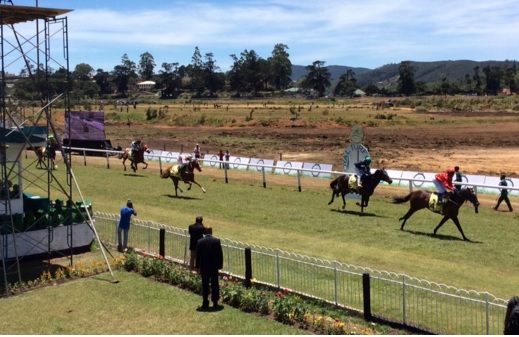
Last week, I awarded the prizes at Sri Lanka’s Young Speaker 2016 competition. This is a testing event, in which young people have to make two short speeches, one prepared, and one on a topic given to them just two minutes before they take to the stage. It’s organised by the British School in Colombo and Adventus Education, who want young people to develop critical communication skills. Nineteen schools take part, from across the Government, private and international spectrum, and the standard was very high.
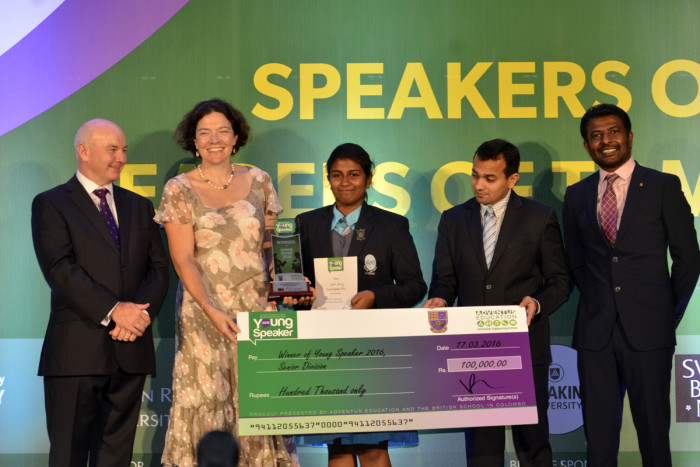
I thought of one of the contestants as I bounced up the train track towards Nuwara Eliya the next day. Speaking on the topic of globalised culture, she had lambasted the impact of colonialism and neo-colonialism on Sri Lankan culture. Nuwara Eliya is often called Little England: the cooler climate, the half-timbered houses and the formal clubs all explain the nickname.
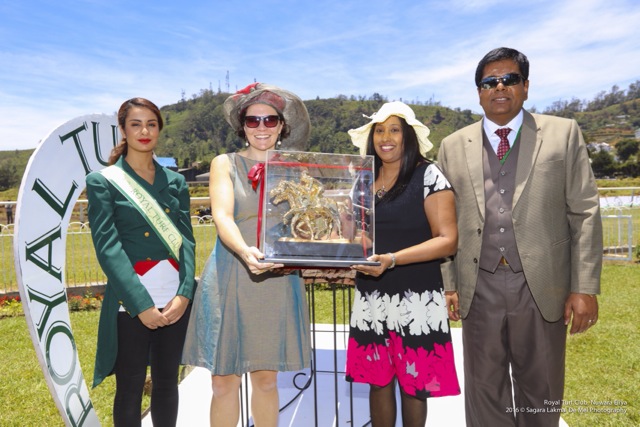 I was there for the first horse race of the season, and had expected a trip down a slightly dilapidated memory lane. Instead, I found refurbished club houses, new turf and some of Sri Lanka’s sharpest new designers presenting a fashion show between races.
I was there for the first horse race of the season, and had expected a trip down a slightly dilapidated memory lane. Instead, I found refurbished club houses, new turf and some of Sri Lanka’s sharpest new designers presenting a fashion show between races.
Horse racing is a very frivolous activity; so is fashion. But it wasn’t the bright silks, smart hats and fast horses that made the event inspiring, rather the confidence they signalled in Sri Lanka’s future stability and prosperity. At a local level, these events are good for investment, for tourism and for local employment. More widely, every rebirth – the turf club, schools opening in former security zones, new hotels in the North and East – makes the case stronger for ensuring that the causes and legacies of conflict in Sri Lanka are dealt with once and for all.
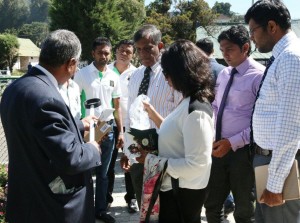
Sri Lanka’s first ever horse racing dope test taking place last weekend in Nuwara Eliya
The drive back down through the tea estates is beautiful, but conditions for many workers are still very difficult, and neighbouring Uva has some of the poorest communities in Sri Lanka. Through the EU, the UK is supporting education of communities in the plantation sector and rural village communities on their rights and entitlements. This work places a special emphasis on empowering women from these areas through e-Governance, access to rights, opportunities and services. I was reminded also of a project that we have been funding through the Centre for Policy Alternatives (CPA). Working with the Central Provincial Council and the management of the Mocha Estate in Maskeliya, the CPA has helped provide addresses to 1,500 plantation sector families. Some communities have lived on plantations for generations, but their homes have not had addresses. This has excluded them from correspondence with local government, banks and schools or universities.
I was struck by CPA Executive Director Dr Paikiasothy Saravanamuttu’s comment: ‘It is sad that in the year 2016, we are celebrating that our fellow citizens are getting addresses. While we should acknowledge that this is going to change, we should also be ashamed that we have let it go on for so long. We want a Sri Lanka where all citizens are equal.’ This project was part of our wider support to the CPA on Language Rights: supporting local initiatives that help people communicate with their neighbours, and challenging instances where minorities are excluded from accessing services in their own language, or even put at risk because information is printed only in a language they can’t read.
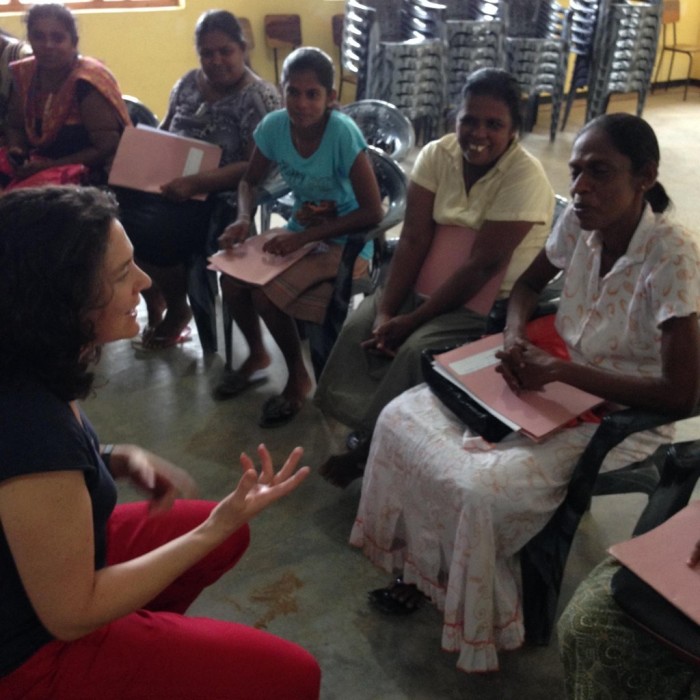
All Sri Lanka’s communities need a stake in its future. It’s good to see consultations reaching out across the island, the start of a multi-lingual, multi-layered conversation about the future that Sri Lankans want for themselves and their children. May it be stable, inclusive and prosperous!